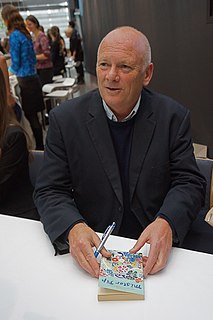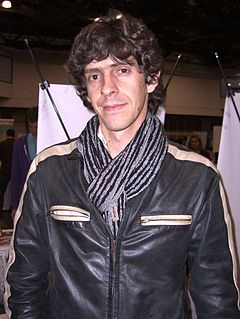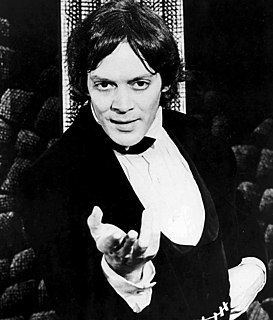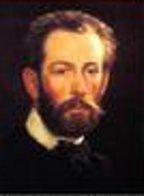A Quote by Ann-Marie MacDonald
Afterwards, in bed with a book, the spell of television feels remote compared to the journey into the page. To be in a book. To slip into the crease where two pages meet, to live in the place where your eyes alight upon the words to ignite a world of smoke and peril, colour and serene delight. That is a journey no one can end with the change of a channel. Enduring magic.
Related Quotes
Boswell: But, Sir is it not somewhat singular that you should happen to have Cocker's Arithmetic about you on your journey? Dr. Johnson: Why, Sir if you are to have but one book with you upon a journey, let it be a book of science. When you read through a book of entertainment, you know it, and it can do no more for you; but a book of science is inexhaustible.
If you take a book with you on a journey," Mo had said when he put the first one in her box, "an odd thing happens: The book begins collecting your memories. And forever after you have only to open that book to be back where you first read it. It will all come into your mind with the very first words: the sights you saw in that place, what it smelled like, the ice cream you ate while you were reading it... yes, books are like flypaper—memories cling to the printed page better than anything else.
The burning of a book is a sad, sad sight, for even though a book is nothing but ink and paper, it feels as if the ideas contained in the book are disappearing as the pages turn to ashes and the cover and binding--which is the term for the stitching and glue that holds the pages together--blacken and curl as the flames do their wicked work. When someone is burning a book, they are showing utter contempt for all of the thinking that produced its ideas, all of the labor that went into its words and sentences, and all of the trouble that befell the author . . .
The book [The Miraculous Journey of Edward Tulane] is about the fact that living in this world means that your heart is necessarily going to get broken. But the book also says that's okay. That's the only way to live a truly human life - with your heart getting broken - and eventually getting flooded with love.
At times I believed that the last page of my book and the last page of my life were one and the same, that when my book ended I'd end, a great wind would sweep through my rooms carrying the pages away, and when the air cleared of all those fluttering white sheets the room would be silent, the chair where I sat empty.
I believe that magic is art, and that art, whether that be music, writing, sculpture, or any other form, is literally magic. Art is, like magic, the science of manipulating symbols, words or images, to achieve changes in consciousness… Indeed to cast a spell is simply to spell, to manipulate words, to change peoples consciousness, and this is why I believe that an artist or writer is the closest thing in the contemporary world to a shaman.
In the biographical novel, there's only one person involved. I, the author, spend two to five years becoming the main character. I do that so by the time you get to the bottom of Page 2 or 3, you forget your name, where you live, your profession and the year it is. You become the main character of the book. You live the book.
Your life is like a book. The title page is your name, the preface your introductions to the world. The pages are a daily record of your efforts, trials, pleasures, discouragements, and achievements. Day by day your thoughts and acts are being inscribed in your book of life. Hour by hour, the record is being made that must stand for all time. Once the word 'finish' must be written, let it then be said of your book that it is a record of noble purpose, generous service, and work well-done.






































